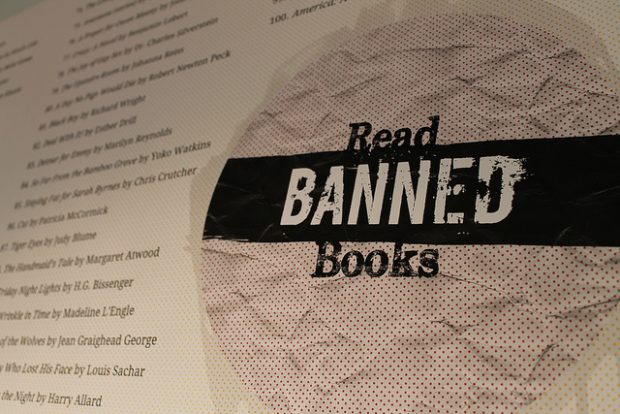26 Sep 2017 | Artistic Freedom, News
[vc_row][vc_column][vc_column_text]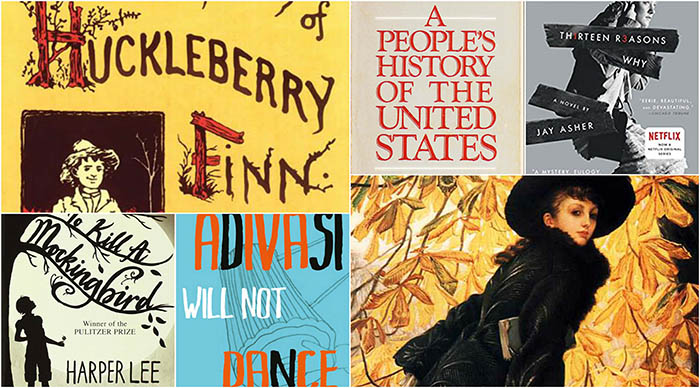
An annual celebration of the freedom to read, Banned Books Week was launched in 1982 in response to a surge in book censorship in schools, bookshops and libraries in the USA.
Since then, over 11,300 books have been banned. Thankfully, there have always been those committed to challenging censorship, including authors, librarians, teachers and students.
But what are the censors so afraid of? Here are 10 books banned in some way over the last year to give us an idea.
13 Reasons Why – Jay Asher
The Netflix adaption of Jay Asher’s young adult novel 13 Reasons Why has been causing controversy over its exploration of teenage suicide ever since its release in March 2017. So much so that New Zealand’s classifications body created a whole new category of censorship, RP18, to restrict the showing of the series to anyone under the age of 18.
Naturally, the treatment of the book itself has followed suit, with many calling for the book to be banned over its perceived irresponsible or unrealistic handling of issues of mental health.
An official Mesa County Valley School District in Colorado, USA, briefly ordered librarians to pull 13 Reasons Why from school bookshelves in April 2017. However, after the intervention of a number of librarians, the curriculum director for the district reversed her decision.
The works of Howard Zinn fall foul of US Republican lawmakers
In May 2017, US Republican senator Kim Hendren of Arkansas introduced a bill to ban the works of the late social activists and Boston University professor Howard Zinn from public schools.
Zinn’s A People’s History of the United States, which is part of many school and college curriculums across the country, is an attempt to bring to light parts of US history that aren’t covered in-depth elsewhere, including equality movements throughout the 20th century.
Many US conservatives argue that there is already too much focus on race and class, including slavery and the genocide of Native Americans, in school curriculums. Bills such as Hendren’s — and that of an Oklahoma lawmaker in 2015 which sought to correct the fact that the USA was not portrayed in a positive enough light in history curriculums — are intended to redress the situation.
However, Hendren’s bill has only increased demand for the works of Zinn. Some 700 copies of A People’s History of the United States were sent free to teachers and librarians throughout Arkansas thanks to the controversy and thanks to a flood of donations copies are being given away to any middle or high school teacher or librarian in Arkansas who asks.
To Kill a Mockingbird – Harper Lee
The Adventures of Huckleberry Finn – Mark Twain
In December 2016, a US school district has banned To Kill a Mockingbird and The Adventures of Huckleberry Finn after a parent complained about use of racist language. The books were removed from classrooms and school libraries in Accomack County, Virginia.
It came after one parent told a school board meeting: “I’m not disputing this is great literature, but there is so much racial slurs in there and offensive wording that you can’t get past that, and right now we are a nation divided as it is.”
Racism is a central theme in Mark Twain’s classic work, which explores the oppression of black slaves in pre-Civil War America. It includes the word “nigger” over 200 times. But it is a satire which tackles racism with irony and many fans of the book would agree that is, in fact, a great anti-racist novel. Which is why so many were dismayed in 2011 when a new edition of Huckleberry Finn was released with all uses of the offending word removed.
Likewise, the treatment of To Kill a Mockingbird seemed to be more motivated by the words characters use rather than its critique of racism.
The Adivasi Will Not Dance – Hansda Sowvendra Shekhar
Along with thinking of the children, protecting the dignity of women has always been a mainstay of the moralists. In 1928 all of Chicago’s public libraries removed the Wizard of Oz for “depicting women in strong leadership roles”. Such attitudes are not a thing of the past.
In August of this year, the Jharkhand government in eastern India banned The Adivasi Will Not Dance, a collection of short stories by the award-winning Indian writer Hansda Sowvendra Shekhar, for daring to depict women from the Santhal tribe in a sexual way.
Authorities, claiming that the content of the book may disturb law and order situation in Jharkhand, began seizing copies and the author, a government doctor, was suspended from his position.
Shekhar vowed not to edit a single word and advised all who have a problem with it to take the time to actually read it.
Fanny Hill – John Cleland
Sexual content has been the number one reason for the banning of books this century, and just because a book wasn’t written in this century, doesn’t mean it escapes the censor’s pen.
Memoirs of a Woman of Pleasure, more widely known as Fanny Hill, an erotic novel first published in London in 1748, has been peeving off puritans since it was first printed. While it doesn’t contain a single rude word, John Cleland’s work is about a sex worker who enjoys her work.
For this, the author was prosecuted for “corrupting the king’s subjects”. The book is one of the most banned in history, and in August 2017, a professor at Royal Holloway, University of London, Judith Hawley, said she would worry about upsetting students by teaching the work. Many in the media have accused Hawley of banning the book outright, some saying she removed it from a reading list, but she claims she hasn’t as it was never on the course in the first place. But when is a ban a ban? Speaking on BBC Radio 4, Hawley said of the book: “I use it less than I used to. In the 1980s I both protested against the opening of a sex shop in Cambridge and taught Fanny Hill. Nowadays I’d be afraid of causing offence to my students.” She also raised concerns that her “students would slap me with a trigger warning”. Not teaching something for fear of offending students or to avoid becoming a trigger warning does amount to a ban.
“We shouldn’t assume that pornography is really speaking about sex, or that the only way to speak about sex is pornography,” she later added, but then expressed her worry at the “pornification of modern culture”.
LGBT books banned at Honk Kong book fair
Unless a book contains strictly conventional values and conduct, it has probably irked someone in a position of power somewhere along the way. Unfortunately, this means if you write a book called Gay Soldier’s Diary, you’re likely to to face trouble.
This was the case at the Hong Kong Book fair in July, where several titles, including Gay Soldier’s Diary, were banned on the grounds that they were “indecent”. The books depict no violence or nudity, so don’t actually breach the fair’s rules on indecency, but this didn’t stop organisers removing nine of 15 titles at the Taiwan Indie Publishers Alliance stall, including A Gentleman’s Wedding and Crying Girls.
Winnie the Pooh – AA Milne
In 1988, when official censorship ceased in the Soviet Union, banned publications suddenly became easily accessible to the general public. Works by Aleksandr Solzhenitsyn, Leon Trotsky and even Henry Kissinger, which were critical of the Soviet Union or deemed in some way to be subversive.
Whenever the vaults in China finally open, Chinese citizens will find curiosities like Winnie the Pooh, English writer AA Milne’s children’s series.
Pooh Bear’s only crime was to resemble China’s current president Xi Jinping, which some Chinese dissidents were only too eager to point out. Memes that went viral included a 2013 photo of a meeting between Xi and then-US president Barack Obama alongside a picture of Winnie the Pooh and his friend Tigger. As a result, the Chinese name for Winnie the Pooh (Little Bear Winnie) is blocked on Chinese social media sites and those who write”Little Bear Winnie” on the site Weibo are met with an error message.
Breaking the Silence – G25
G25 is a group of 25 Malay-Muslim leaders whose goal is to preserve the basic rights of freedom of expression and worship in Malaysia, where Islam is the official religion.
A book by the group, Breaking the Silence: Voices of Moderation – Islam in a Constitutional Democracy, has been banned after the Malaysian government deemed it to be “prejudicial to public order”. According to G25’s Noor Griffin, “it is meant to encourage debates about the Islamic religion”.
Deputy prime minister Ahmad Zahid Hamidi authorised the ban on the book on 14 June.
In 2014, a comic called Ultraman was banned in the country because it referred to the hero as “Allah”.
Little Bill – Bill Cosby
Challenges to Bill Cosby’s Little Bill children’s book series followed allegations of sexual assault were made against the comedian by a number of women, reaching back over many years. The censoring of Little Bill books is believed to the first time a title has been targeted solely for its author and not its content, ALA Office for Intellectual Freedom Director James LaRue said.
This article was updated on 28 September to add more context to Judith Hawley’s views on Fanny Hill.[/vc_column_text][/vc_column][/vc_row][vc_row][vc_column][vc_basic_grid post_type=”post” max_items=”2″ element_width=”6″ grid_id=”vc_gid:1506589920727-40713b18-3658-2″ taxonomies=”8820, 6696″][/vc_column][/vc_row]
28 Sep 2016 | mobile, News
Monday marked the beginning of Banned Books Week. To celebrate the freedom to read, Index on Censorship staff explore some of their favourite, and some of the most important, banned or challenged books.
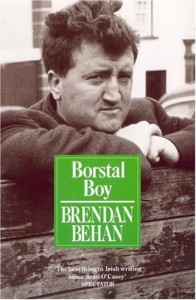
Ryan McChrystal – Borstal Boy by Brendan Behan
Brendan Behan’s autobiographical work Borstal Boy was banned in Ireland in December 1958. His London publisher, Hutchinson’s, had sent a batch of copies to Dublin to be sold at a Christmas market but they were confiscated at the port. Behan was outraged that a group of “country yobs” could prevent the distribution of his book.
Borstal Boy is the story of how a 16-year-old Behan landed himself in a series of institutions for young offenders in Kent, having been charged with membership of the IRA, and what happened to him after that.
Although Ireland’s Censorship of Publications Board never explained why the book was banned, it probably had something to do with its depictions of adolescents talking about sex and its pillorying of Irish social attitudes, republicanism and the Catholic Church. The board is, after all, known for its stringent adherence to Roman Catholic values.
When Behan later learned that the book was also banned in Australia and New Zealand, he took solace in song and humour as he went around Dublin singing:
“My name is Brendan Behan, I’m the latest of the banned
Although we’re small in numbers we’re the best banned in the land,
We’re read at wakes and weddin’s and in every parish hall,
And under library counters sure you’ll have no trouble at all.”
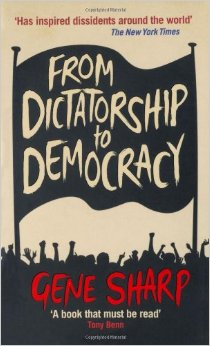
David Heinemann – From Dictatorship to Democracy by Gene Sharp
Running the Freedom of Expression Awards’ Fellowship and helping brave people who are often fighting totalitarian regimes can sometimes feel like an uphill battle. How can one person or organisation ever hope to defeat an entire dictatorship?
They can’t, of course, but Gene Sharp’s little book reminds me that “the deliberate, non-violent disintegration of dictatorships” is possible when people work together in certain ways. Part handbook, part political pamphlet, it’s an invaluable toolbox for any serious democratic activist. Its potency was illustrated last year when a group of young Angolans were imprisoned simply for trying to get together and discuss it at a book club.
The fact that I could read it on my commute home reminded me never to take my freedoms for granted.
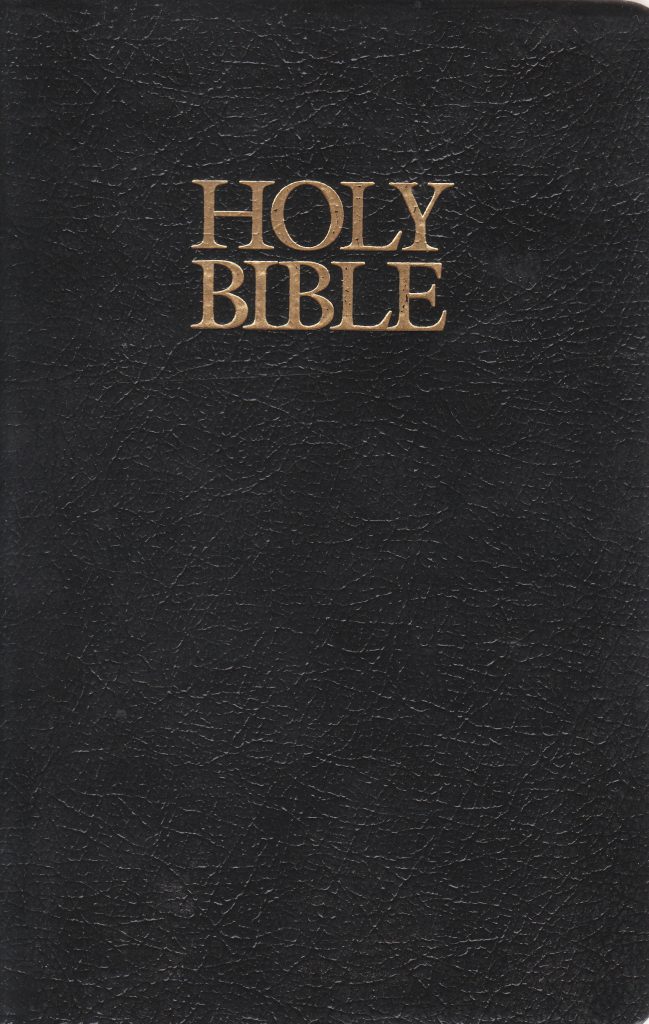
Vicky Baker – The Bible
The Bible is not an obvious choice for me as I’m an atheist, but loosely picking up on that misattributed Voltaire quote, I would defend anyone’s right to read it – or indeed any other religious book.
Pope Francis has called The Bible “an extremely dangerous book”. Owning it or reading it can get you still get you imprisoned or killed in certain parts of the world. This is the sort of book banning that we should all be extremely worried about, whatever your religion.
These days I don’t even have a copy in my house, but its stories formed part of my childhood. When I grew up I learnt that my hometown, Amersham in Buckinghamshire, also had an important connection to censorship of The Bible. In the 16th century a group of local Lollards were burned at the stake for wanting to translate the book from Latin to English; some of their children were forced to light the pyre.
Known as the Amersham Martyrs, they have since been honoured in a memorial stone, costumed walking tours, and through occasional community plays about their lives, staged in a local church. (Imagine if the bishop who sentenced them saw this today.)
Sadly, we live in a world where censorship of the Bible is not ancient history. In 2014, an American man was sent to labour camp in North Korea for leaving a Bible in a restaurant’s bathroom when visiting as a tourist. It was deemed a crazy act – and, indeed, the move also endangered his local tour guides – but it is outrageous that simply leaving a book behind, so readers can choose to pick it up or not, can still lead to such punishments.

David Sewell – The Things They Carried by Tim O’Brien
One of those cases in the USA where the pressure to ban comes not from the authorities, but from citizens wanting it pulled from libraries or schools. Complaints were made about its sweary language and its graphic depictions of violence and death. But there again it’s about a grunt’s eye view of the Vietnam war, so go figure.
Only this is really a remarkable work of fiction, which is highly literary in its narrative form. It uses stories to try and construct the extreme experience of war, but also uses war to explore the drive to create stories for ourselves. Language is used to defang terror on the battlefield, stories are invented (and embellished through the re-telling) to keep dead comrades alive, because if they are allowed to die, then it brings death one step closer to the surviving soldiers.
A fascinating book that tries to put words to the unsayable and unspeakable, and its would-be censors are attempting to make it a different kind of unspeakable and unsayable.
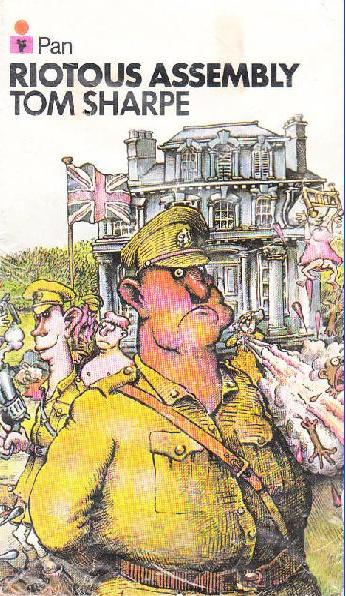
Kieran Etoria-King – Riotous Assembly by Tom Sharpe
One of the most enduring, darkly funny things I’ve ever read was the opening chapter of Tom Sharpe’s 1971 novel Riotous Assembly, in which a South African police chief argues with an old white woman who shot her black chef in the garden of her stately home. As two deputies collect up the obliterated corpse of the man she killed with a four-barrelled elephant gun, Miss Hazelstone, who graphically describes her illicit love affair with the chef, demands to be arrested for murder, while a disgusted Kommandant van Heerden insists that the killing of a black person is not murder. Meanwhile, the entire police force of the fictional town of Piemburg, operating under mistaken intelligence, are engaged in a fierce and escalating firefight at the gate, unaware that they are actually shooting at each other from behind cover.
Sharpe had lived in South Africa from 1951 to 1961 before he was deported over a play he staged that criticised the government, so he had an intimate knowledge of the country and Riotous Assembly, a hilarious send-up of the South African police force, is driven as much by real venom and contempt for the Apartheid system as it is by vulgar humour. Of course, that system wasn’t going to tolerate such mockery and the book was banned in South Africa as well as Zimbabwe.
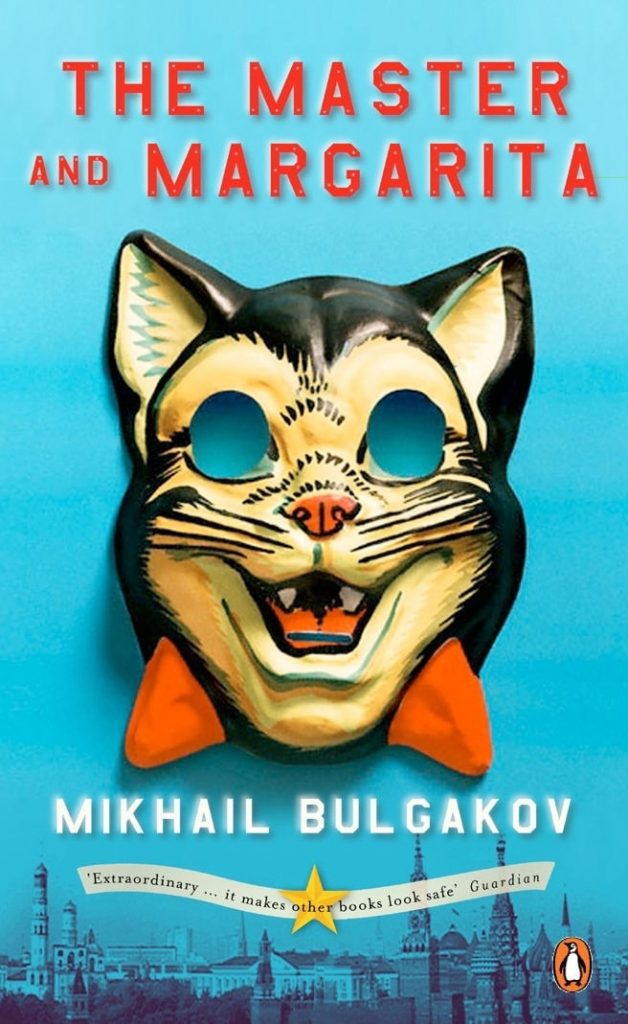
Helen Galliano – The Master and Margarita by Mikhail Bulgakov
I first came across The Master and Margarita – considered to be one of the finest novels to come out of the Soviet Union – as a performance student at Goldsmiths and a lover of magical realism. I immediately fell into Bulgakov’s wild and dangerous world of talking cats, decapitations, magic shows, Satan’s midnight ball and plenty of vodka. I was hooked, reading it multiple times throughout my third year and even created a performance reimagining Margarita’s transformation into a witch.
The forward to the 1997 translation of the novel reads: “Mikhail Bulgakov worked on this luminous book throughout one of the darkest decades of the century. His last revisions were dictated to his wife a few weeks before his death in 1940 at the age of forty-nine. For him, there was never any question of publishing the novel. The mere existence of the manuscript, had it come to the knowledge of Stalin’s police, would almost certainly have led to the permanent disappearance of its author.”
Faced with persecution, Bulgakov burned the first manuscript of The Master and Margarita, only to re-write it later from memory. It was eventually published nearly three decades after his death and since then “manuscripts don’t burn”, a famous line from the book, has come to symbolise the power and determination of human creativity against oppression.
Great literature and great ideas will always survive.
What’s it like to be an author of a banned or challenged book? How can librarians support authors who find themselves in this situation? To mark Banned Books Week, Vicky Baker, deputy editor of Index on Censorship magazine, will chair an online discussion with three authors on 29 September, followed by a Q&A. It is free to join, although attendees must register in advance.
24 Mar 2016 | Magazine, mobile, Volume 45.01 Spring 2016
[vc_row][vc_column][vc_custom_heading text=”This year brings the 400th anniversary of William Shakespeare’s death and Index on Censorship is marking it with a special issue of our award-winning magazine, looking at how his plays have been used around the world to sneak past censors or take on the authorities – often without them realising.”][vc_row_inner][vc_column_inner width=”1/2″][vc_column_text]
Our special report explores how different countries use different plays to tackle difficult themes. Hungarian author György Spiró writes about how Richard III was used to taunt eastern European dictators during the 1980s. Dame Janet Suzman remembers how staging Othello with a black lead during apartheid in South Africa caused people to walk out of the theatre.
[/vc_column_text][/vc_column_inner][vc_column_inner width=”1/2″][vc_single_image image=”74261″ img_size=”full”][/vc_column_inner][/vc_row_inner][vc_column_text]
Kaya Genç tells of a 1981 production of A Midsummer’s Night Dream in Turkey that landed most of the cast in jail. And Brazilian director Roberto Alvim recounts his recent staging of Julius Caesar, which was inspired by the country’s current political tumult. The issue also includes contributions from Simon Callow, Tom Holland, Preti Taneja and Kathleen E McLuskie. Plus we explore Shakespeare’s ability to provoke and protest in India, Zimbabwe and the USA. Currently Shakespeare is very much in favour in China and our contributing editor Jemimah Steinfeld explores why.
Shakespeare aside, we have Hollywood screenwriter John McNamara on why his film on blacklisted screenwriter Dalton Trumbo nearly didn’t make it to the big screen. There are interviews with US academic Steven Salaita and Syrian playwright Liwaa Yazji. We look at how one man from New Zealand has been hacking North Korea for years. And we explore Index’s archives on Argentina’s dictatorship, 40 years after the coup, with interviews from former prisoners and descendants of the disappeared.
The issue also includes new fiction from Akram Aylisli, one of Azerbaijan’s leading, and persecuted, writers. Plus lyrics from Egyptian musician Ramy Essam, famed for his performances in the Tahrir Square revolution, and Basque protest singer Fermin Muguruza. And there are illustrations and cartoons by Martin Rowson, Ben Jennings, Eva Bee and Brian John Spencer.
Order your copy here, or take out a digital subscription via Exact Editions (just £18 for the year, with a free trial). Copies are also available in excellent bookshops including at the BFI and Serpentine Gallery (London), News from Nowhere (Liverpool), Home (Manchester) and on Amazon. Each magazine sale helps Index on Censorship fight for free expression worldwide.
[/vc_column_text][/vc_column][/vc_row][vc_row][vc_column][vc_custom_heading text=”SPECIAL REPORT: STAGING SHAKESPEREAN DISSENT” css=”.vc_custom_1483446641352{margin-right: 0px !important;margin-left: 0px !important;border-bottom-width: 1px !important;padding-top: 15px !important;padding-bottom: 15px !important;border-bottom-color: #455560 !important;border-bottom-style: solid !important;}”][vc_column_text]
Plays that protest, provoke and slip by the censors
Rising star – Jemimah Steinfeld on how China has embraced Shakespeare, with performances spanning from brash pro-government productions to a Tibetan Hamlet
When the show doesn’t go on – Jan Fox reports on why school and community theatre productions in the US are under increasing pressure to curb “controversial” themes
The Bard meets Bollywood – Suhrith Pathasarathy looks at how India’s films use Shakespeare to tackle controversy
Lifting the curtain on Zimbabwe – While Shakespeare’s tales of power play and ageing rulers get the go-ahead, local playwrights struggle to be heard, says playwright Elizabeth Zaza Muchemwa
Lend me your ears – Claire Rigby interviews leading Brazilian director Roberto Alvim about tackling his country’s current political turmoil through Julius Caesar
The play’s the thing – Kathleen E McLuskie on how the Bard kept out of trouble with the censors of his day, despite some close calls
Morals made to measure – Tom Holland suggests that Measure for Measure could be reworked for our times
Stripsearch – Martin Rowson’s cartoon on how the history plays would be staged in the Pious People’s Hereditary Democractic Republic of Kryxygistan
The writer of our discontent – György Spiró remembers when a Hungarian staging of Richard III became a way to take on eastern Europe’s dictators
Star-crossed actors – Preti Taneja visits a dual production of Romeo and Juliet staged by theatres in Kosovo and Serbia
When the Dream upset the regime – Kaya Genç on the enduring legacy of a subversive 1981 performance of A Midsummer Night’s Dream in Turkey
Say no moor – Dame Janet Suzman tells Natasha Joseph why South Africa’s apartheid-era censors wouldn’t dare touch Othello
[/vc_column_text][/vc_column][/vc_row][vc_row][vc_column][vc_custom_heading text=”IN FOCUS” css=”.vc_custom_1481731813613{margin-right: 0px !important;margin-left: 0px !important;border-bottom-width: 1px !important;padding-top: 15px !important;padding-bottom: 15px !important;border-bottom-color: #455560 !important;border-bottom-style: solid !important;}”][vc_column_text]
Theatre of war – Charlotte Bailey interviews Syrian playwright Liwaa Yazji
Beyond belief – Ryan McChrystal looks at whether Ireland’s new government will finally phase out the country’s blasphemy law
Exposing history’s faultlines – Vicky Baker explores the Index archives for stories of Argentina’s dictatorship 40 years on, and talks to those who were affected
Rainbow warriors – Duncan Tucker reports on the attacks and killings of LGBT activists in Honduras
Hack job – Sybil Jones interviews Frank Feinstein, who monitors the North Korean propaganda machine
“They worried I’m dangerous. I’m absolutely harmless” – Nan Levinson speaks to US academic Steven Salaita who lost his job after posting controversial tweets
Tools and tricks for truthseekers – Alastair Reid and Peter Sands on why people need to learn verification techniques to combat hoaxes and misinformation on social media
Your television is watching you – Jason DaPonte explains how information stored by internet-connected home devices could be used against us
Tackling Trumbo – Hollywood screenwriter John McNamara on how his story about blacklisted writer Dalton Trumbo almost didn’t make it to screens
[/vc_column_text][/vc_column][/vc_row][vc_row][vc_column][vc_custom_heading text=”CULTURE” css=”.vc_custom_1481731777861{margin-right: 0px !important;margin-left: 0px !important;border-bottom-width: 1px !important;padding-top: 15px !important;padding-bottom: 15px !important;border-bottom-color: #455560 !important;border-bottom-style: solid !important;}”][vc_column_text]
Know your enemy – John Angliss introduces his translation of a new short story by one of Azerbaijan’s leading, persecuted writers, Akram Aylisli
Borderless bard – Josie Timms interviews poet Edin Suljic who fled war in Yugoslavia and found inspiration in Shakespeare
Singing for Tahrir – Musician Ramy Essam who roused crowds during the Egyptian revolution shares his lyrics and future plans
Notes of discord – Rachael Jolley speaks to the Basque singer Fermin Muguruza about having his concerts banned in Madrid
[/vc_column_text][/vc_column][/vc_row][vc_row][vc_column][vc_custom_heading text=”COLUMNS” css=”.vc_custom_1481732124093{margin-right: 0px !important;margin-left: 0px !important;border-bottom-width: 1px !important;padding-top: 15px !important;padding-bottom: 15px !important;border-bottom-color: #455560 !important;border-bottom-style: solid !important;}”][vc_column_text]
Global view – Index on Censorship CEO Jodie Ginsberg debunks the argument that powerful voices should be silenced to promote the free speech of others
Index around the world – Josie Timms runs through the latest news on Index on Censorship’s global work, including a Magna Carta-inspired youth project
[/vc_column_text][/vc_column][/vc_row][vc_row][vc_column][vc_custom_heading text=”END NOTE” css=”.vc_custom_1481880278935{margin-right: 0px !important;margin-left: 0px !important;border-bottom-width: 1px !important;padding-top: 15px !important;padding-bottom: 15px !important;border-bottom-color: #455560 !important;border-bottom-style: solid !important;}”][vc_column_text]
T-shirted turmoil – Vicky Baker looks at the power of the slogan T-shirt and how one can land you in trouble with the law
[/vc_column_text][/vc_column][/vc_row][vc_row][vc_column][vc_custom_heading text=”SUBSCRIBE” css=”.vc_custom_1481736449684{margin-right: 0px !important;margin-left: 0px !important;border-bottom-width: 1px !important;padding-bottom: 15px !important;border-bottom-color: #455560 !important;border-bottom-style: solid !important;}”][vc_column_text]Index on Censorship magazine was started in 1972 and remains the only global magazine dedicated to free expression. Past contributors include Samuel Beckett, Gabriel García Marquéz, Nadine Gordimer, Arthur Miller, Salman Rushdie, Margaret Atwood, and many more.[/vc_column_text][vc_row_inner][vc_column_inner width=”1/2″][vc_single_image image=”76572″ img_size=”full”][/vc_column_inner][vc_column_inner width=”1/2″][vc_column_text]In print or online. Order a print edition here or take out a digital subscription via Exact Editions.
Copies are also available at the BFI, the Serpentine Gallery, MagCulture, (London), News from Nowhere (Liverpool), Home (Manchester), Calton Books (Glasgow) and on Amazon. Each magazine sale helps Index on Censorship continue its fight for free expression worldwide.
 SUBSCRIBE NOW[/vc_column_text][/vc_column_inner][/vc_row_inner][/vc_column][/vc_row]
SUBSCRIBE NOW[/vc_column_text][/vc_column_inner][/vc_row_inner][/vc_column][/vc_row]
19 Jan 2016 | Bahrain, Bahrain Statements, Campaigns, Statements
NGOs from the around the world call for the immediate release of prisoner of conscience Dr. Abduljalil al-Singace on his 300th day of hunger strike. Dr. al-Singace began his hunger strike in March 2015 as a response to police subjecting inmates at the Central Jau Prison to collective punishment, humiliation and torture.
Since 21 March 2015, Dr. al-Singace has foregone food and subsisted on water and IV fluid injections for sustenance. Days later, Jau prison authorities transferred him to the Qalaa hospital, where he is still being kept in a form of solitary confinement.
Dr. al-Singace’s family, who visited him on 7 January, state that the prison administration is controlling his treatment at Qalaa hospital, and has for five months continuously, denied his need for a physical checkup by his hematologist at Salmaniya Medical Complex.
According to Dr. al-Singace’s family, he is not allowed to walk outside. He remains isolated in the Qalaa hospital, and is provided only irregular contact with his family. He is frequently denied basic hygienic items including soap, and is not allowed to interact with other patients in the hospital.
Dr. al-Singace is a member of the Bahrain 13, a group of thirteen peaceful political activists and human rights defenders, including Ebrahim Sharif and Abdulhadi al-Khawaja, sentenced to prison terms for their peaceful role in Bahrain’s Arab Spring protests in 2011.
Dr. al-Singace was first arrested in August 2010 at Bahrain airport. He had just returned from a conference at the British House of Lords regarding human rights in Bahrain. Security forces detained Dr. al-Singace for six months, during which he was tortured, and released him in February 2011 during the height of protests. However, Dr. al-Singace was rearrested on 17 March 2011, after his participation in peaceful pro-democracy protests. In detention, officers blindfolded, handcuffed, and beat Dr. al-Singace in the head with their fists and batons. Officers threatened him and his family with reprisals.
On 22 June 2011, a military court sentenced Dr. al-Singace to life for attempted overthrow of the regime. Since then, he has been imprisoned in the Central Jau Prison, and has only recently received treatment for a nose injury sustained during torture. He has been denied treatment for a similar ear injury also sustained during torture since his incarceration.
In 2015, Dr. al-Singace was awarded the Liu Xiaobo Courage to Write Award by the Independent Chinese PEN Centre, and was named one of Index on Censorship’s 100 “free expression heroes” in 2016. He has long campaigned for an end to torture and political reform, writing on these and other subjects on his blog, Al-Faseela, which remains banned by Bahraini Internet Service Providers. Bahrain has become a dangerous place for those who speak out, with peaceful dissidents at risk of arbitrary arrests, systematic torture and unfair trial.
We, the undersigned NGOs, call on the government of Bahrain to immediately secure the release of Dr. al-Singace and all prisoners of conscience, and to provide all appropriate and necessary medical treatment for Dr. al-Singace.
Signatories:
Americans for Democracy and Human Rights in Bahrain (ADHRB)
ARTICLE 19
Bahrain Center for Human Rights (BCHR)
Bahrain Institute for Rights and Democracy (BIRD)
Committee to Protect Journalists (CPJ)
Croatian PEN
Danish PEN
English PEN
European Center for Democracy and Human Rights (ECDHR)
FIDH, within the framework of the Observatory for the Protection of Human Rights Defenders
Ghanaian PEN
Gulf Centre for Human Rights (GCHR)
Icelandic PEN
Index on Censorship
Italian PEN
Norwegian PEN
PEN America
PEN Bangladesh
PEN Bolivia
PEN Canada
PEN Català
PEN Center Argentina
PEN Center USA
PEN Centre of German Speaking Writers Abroad
PEN Eritrea in Exile
PEN Flander
PEN Germany
PEN International
PEN Netherlands
PEN New Zealand
PEN Québéc
PEN Romania
PEN South Africa
PEN Suisse Romand
Peruvian PEN
Reporters Sans Frontiers (RSF)
San Miguel PEN
Scholars at Risk
Scottish PEN
Serbian PEN
Trieste PEN
Wales PEN Cymru
World Organisation Against Torture (OMCT), within the framework of the Observatory for the Protection of Human Rights Defenders
Zambian PEN


